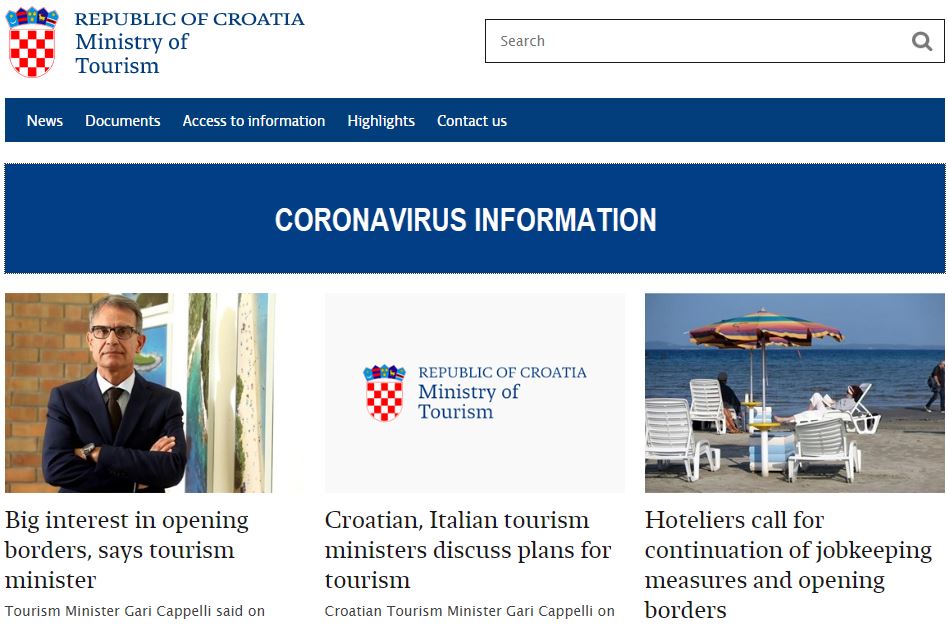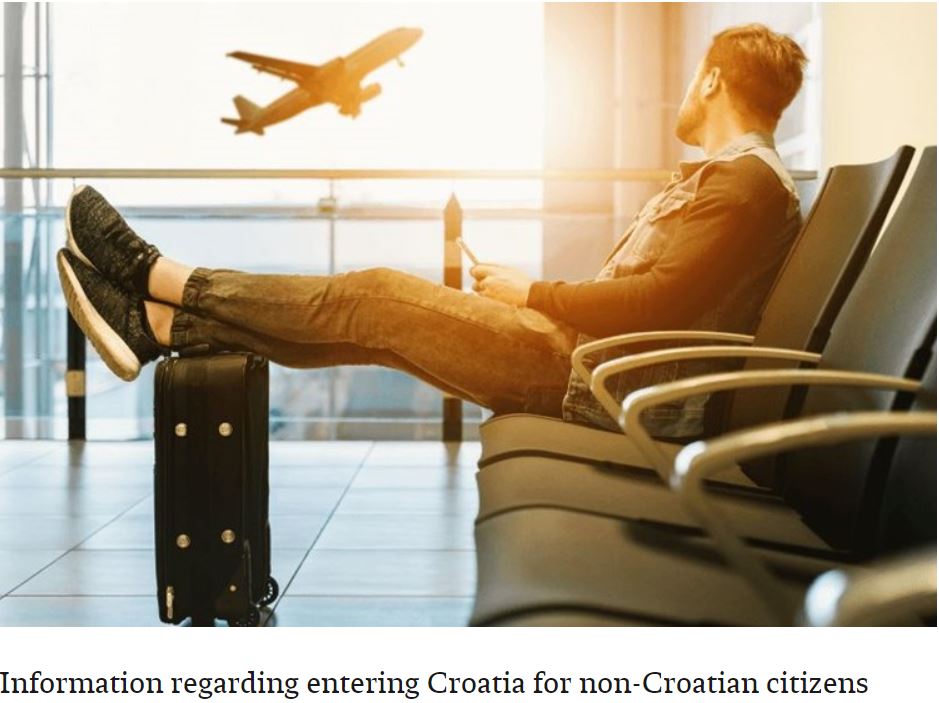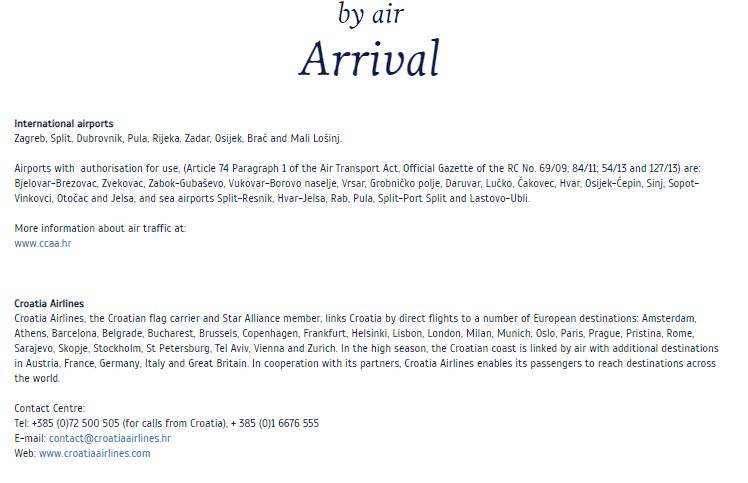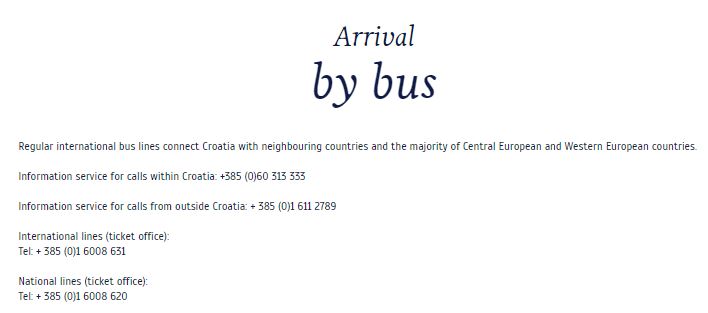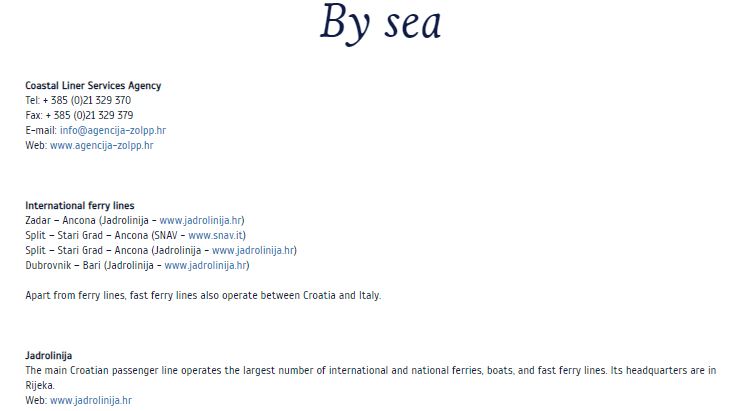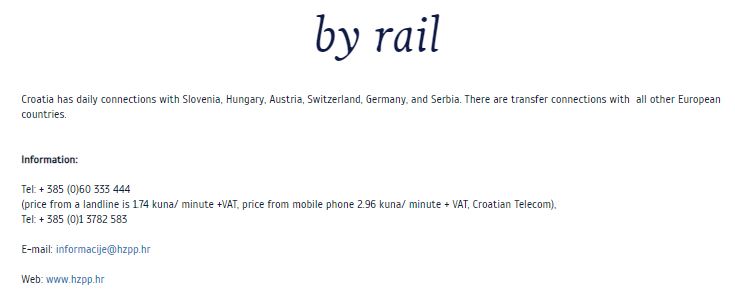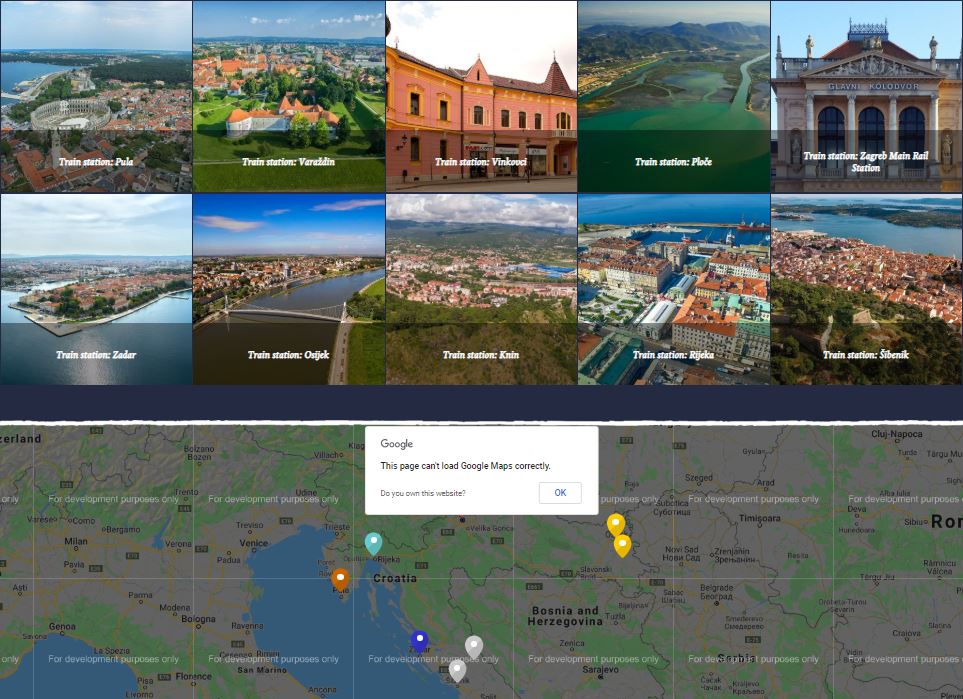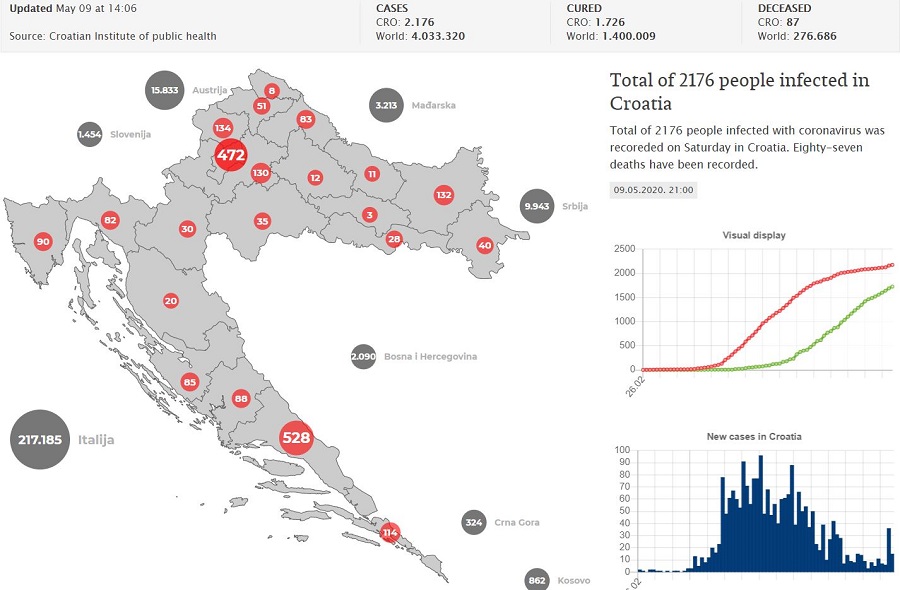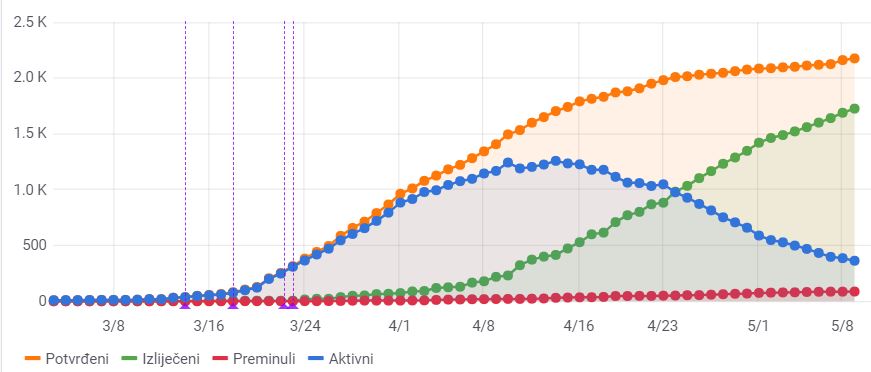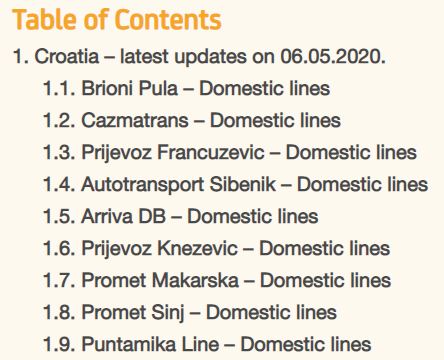Could Croatian Startup Rescue Tourism from Coronavirus Consequences?
With so much focus being placed on just what to do with not only Croatian tourism but the tourism industries of the whole world, could something Made in Croatia manage to help rescue what's left of tourism from coronavirus?
As Poslovni Dnevnik/Bernard Ivezic writes on the 12th of May, 2020, Ivan Bestvina is the co-founder and chief data scientist at ViraTrace. He graduated from the school in Osijek, and then five years ago, he graduated from FER. Back in 2017 he received his master's degree from there. In parallel, he worked as a programmer, analyst and data scientist at the likes of Spin Informatics, Ericsson NT and Mire.
The biggest new startup ''miracle'' from right here in Croatia is called ViraTrace. Just a couple of months ago, Ivan Bestvina from Osijek, who lives in Zagreb, and his partners from Romania, the USA, Canada and India, set out to research how to use technology in the fight against the coronavirus pandemic using contact monitoring applications and maximally protect citizens' privacy.
Now, they have freshly founded a company over in the US. They received an offer for investment from there, and various state institutions around the world warned them that they couldn't continue talks with them without a defined legal form in place.
You may have heard of the Apple-Google initiative in the field of mobile applications to monitor the spread of the new coronavirus, but this "contact tracing" platform is still in the development phase and is not yet available to the public. ViraTrace's technology, on the other hand, is already under the proverbial ''hood'' of the world's most widespread contact tracking software.
It is built into the official Indian COVID-19 app called the Aarogya Set, which is expected to exceed 100 million users in the next three days alone. Within it, ViraTrace calculates who might be infected with the new coronavirus based on a model developed by Bestvina, who offered it for free to anyone fighting coronavirus. Last week, ViraTrace was declared as one of about thirty winners at the European Commission's hackathon #EUvsVirus, as the only one from Croatia to win first place in one of the categories.
There were three more winners from Croatia, but they took second to fourth place in each category.
On that occasion, ViraTrace presented its own mobile application for tracking contacts, its model and the concept of the new hardware used. The aforementioned hardware is the type that would be added to the server and that would prevent even the server's owner from directly accessing the personal data of its users.
Data processing would be possible, but only in an anonymised form. This gave ViraTrace the opportunity to appear in the fast-growing digital health and IoT markets. ''I wouldn’t like to talk about the financial prospects of a startup, because that’s not my area,'' Bestvina said briefly.
Bestvina otherwise helps German company FoodTracks to develop data analytics in order to reduce waste, and has also created the AI startup Courier Data.
Along with him in the ViraTrace team are Romanian Andrei Taranu, with whom he initially started this project. Then there is Wayne Thornton from Americam who also runs the startup, Canadian Anjana Pai, Indian Surbhi Gupta and Anne Frankovic, as well as the epidemiologist, Dr. Joseph Frankovich from the USA.
"Infrastructurally, we've been supported from the very beginning by one of the largest data science platforms, the American Alteryx, which is also in Gartner's Magic Quadrant for Data Science and ML Platforms, and we have the personal support of its director Dean Stoecker," explained Bestvina.
He added that cooperation with Alteryx is currently limited to resources, and not investments. Several investors from the USA have shown interest and are being talked to, he noted. However, ViraTrace first wants to examine investment opportunities in the sequel to the EC hackhaton, where it has already won a 3,000 euro prize sponsored by Capgemini. Bestvina pointed out that this is also a coincidence.
''In the next two to three weeks, we'll be talking to investors and potential beneficiaries under a programme that the European Commission has called Matchathon, so we'll see what happens next with investors,'' Bestvina said, adding that the most important thing for him is that they have chosen the right path from the beginning: the protection of user privacy.
He explained that today, more and more countries in Europe are turning to this approach. One of Europe's strongest economic powers, the United Kingdom, in addition to its centralised application, which it is currently testing, is developing another one based on the decentralizsd approach advocated by Apple and Google. Germany has signaled that it is open to the approach taken by Apple and Google, and, much like Austria and Switzerland, has shown interest in accessing DP-3T.
Bestvina's solution, as he explained, is almost identical to Apple and Google's approach. But the key is which approach the EU will recommend so that EU citizens don't have to install COVID-19 applications for each country separately when crossing any borders. In addition, Apple and Google are under pressure to enable the recording of geolocations and other data on their platform, which will be the basis for the development of mobile applications for coronavirus monitoring.
Bestvina stated that the most important thing is gaining and then maintaining the trust of citizens, because in order for these applications to be functional, more than half of the citizens need to install them. Here, Apple and Google, as seen in Croatia, have an advantage. Bestvina declined to comment on the fact that the Indian Government, meanwhile, has made the Aarogya Setu application mandatory, and it is the only democracy to have done so.
He explained that in Croatia, where tourism, hospitality and transport are extremely important industries, contact tracking applications would be an alternative to quarantine in the early stages of a pandemic, but also later because, as has since been seen in France, the manual tracking of contacts is difficult.
Make sure to follow our dedicated section for more on coronavirus in relation to Croatia. Follow Made in Croatia for more on Croatian innovation.
Coronavirus: Slovenes Interested in Coming to Croatia, Prerequisite Missing
As Poslovni Dnevnik writes on the 11th of May, 2020, the Slovenes are very interested in travelling across the border into Croatia after the announcement of the relaxation of the anti-coronavirus measures due to the favourable epidemiological situation in both countries, but the Slovenian Government continues to emphasise that a bilateral agreement should first be reached between national public health institutes of both Slovenia and Croatia, as well as the police in both neighbouring nations.
As its coronavirus crisis spokesperson Jelko Kacin said at a government press conference on Monday, experts from the Croatian Institute of Public Health and the Slovenian Institute of Public Health are holding a meeting today to reach an agreement on the possibility on the aforementioned issues and the necessary protocols that need to be put in place.
The consular department of the Slovenian Ministry of Foreign Affairs has been being flooded with phone calls from Slovenes who want to come to Croatia as soon as possible, especially owners of real estate, boats and caravans. They are primarily inquiring about the technical details of entering Croatia and returning back home to Slovenia after that, given that the provision on mandatory self-isolation (which is seven days in Slovenia's case) after returning from abroad is still in force, explained Kacin.
It was also added that the Slovenian side is considering the possibility that those who go to Croatia over the weekend, or for a shorter period lasting a maximum of 72 hours, can be allowed to return to Slovenia without having to immediately go into mandatory quarantine or self-isolation, if they adhere to all of the prescribed epidemiological measures on both sides of the Croatian-Slovenian border when travelling.
Kacin assessed Croatia's decision in principle to allow Slovenian citizens to enter as a welcome "political" message from the Croatian side, expressing the desire for as many Slovenian tourists as possible to come to Croatia, but warned that it was not yet operational, as an agreement between the two national institutes for public health and the police forces of both countries needs to be reached first.
''That could happen very quickly, so it is better to wait a few days before travelling,'' Kacin warned.
In addition to reaching an agreement at the level of the institutes of public health of both countries, it is also necessary to reach an agreement on protocols between the Croatian and the Slovenian police forces for the crossing of the border, in order to avoid possible differences in the interpretation of the agreement, said Kacin.
For more on coronavirus in Croatia, follow our dedicated section. For more on travel, click here.
Tourism Minister Gari Cappelli: As of Today, Croatia Breathes Tourism
May 11, 2020 - Croatian Tourism Minister Gari Cappelli said that a message had been sent to the surrounding countries that Croatia began functioning in tourism again, regardless of all the existing measures.
"It is very clear - you can come to a hotel, camp, private accommodation, you can eat in restaurants, inside and outside. You can rent a boat and go sailing; marinas are open. Croatia from today breathes tourism," said the minister as a guest on HRT's show Together for Health, as reported by Index.hr.
He added that this week is a trial, which will determine how everything works.
The HGK hoteliers' association predicts that larger hotel companies will open approximately one to two of the possible ten hotels, while the rest are waiting for a complete suspension of operations.
Agencies and hotels took reservations before the coronavirus pandemic - and the money that comes with them. That money was partly spent to prepare for the season and should now be returned. It is about 200-220 million euro.
Minister Cappelli says that we always like to compare ourselves with others, and cites the example of Germany, which rejected the voucher system. They said, "You have to return the money."
In Croatia, amendments to the Law on the Provision of Tourism Services enabled travel agencies to issue value vouchers instead of refunds to passengers for package deals, for 180 days.
"We practically reacted immediately after 15 days. On the one hand, we protected consumers, but also agencies, that in 180 days, they can agree. Now we are talking about vouchers for hoteliers," he said.
When asked who will guarantee this refund and what if the companies themselves will not be able to return it, he answered:
"We did not go to the stage of responsibility as a state and guarantee the return of these funds. These are agencies that have their share of insurance, so I hope that they are covered," the minister replied.
Speaking about the cancellation of reservations, the minister says that May is "completely lost", and for the most part, so is June.
"We calculate revenues between 25 and 30 percent. Last year, with the domestic market, we made somewhere around 20 billion euro. We did all the surveys, i.e., estimates. We did an estimate of 60-90 percent of losses. I think we could do somewhere between 25 and 30 percent. The first three months are not all lost, but a larger part is lost. Although it is only 5 percent of the turnover, it is somewhere around 480 million euro in the first three months. Somewhere around 2.25 billion euros in April, May and June. That part will be practically completely lost. We estimate that in the first six months we lost about 2.2 to 2.4 billion euro. The most important for us are July, August, and September, where 63 percent of the turnover is realized," the minister said.
To read more about travel in Croatia, follow TCN's dedicated page.
Planning a Trip to the Kingdom of Accidental Tourism? Marvel at the Official Advice
May 11, 2020 - Progress is being made in the information flow, but the unique approach of the Kingdom of Accidental Tourism and its travel advice continues to set the kingdom apart from its tourism competition.
This has been a seismic few days in official travel information flow from the chaps who are the appointed gurus of Croatian tourism. And I mean that genuinely.
But we not quite there yet.
But let's start by celebrating the progress and congratulating the quick response of both the Croatian National Tourist Board and the Ministry of Tourism. For the changes have been swift and a huge improvement. Here's hoping we can build on this wind of change.
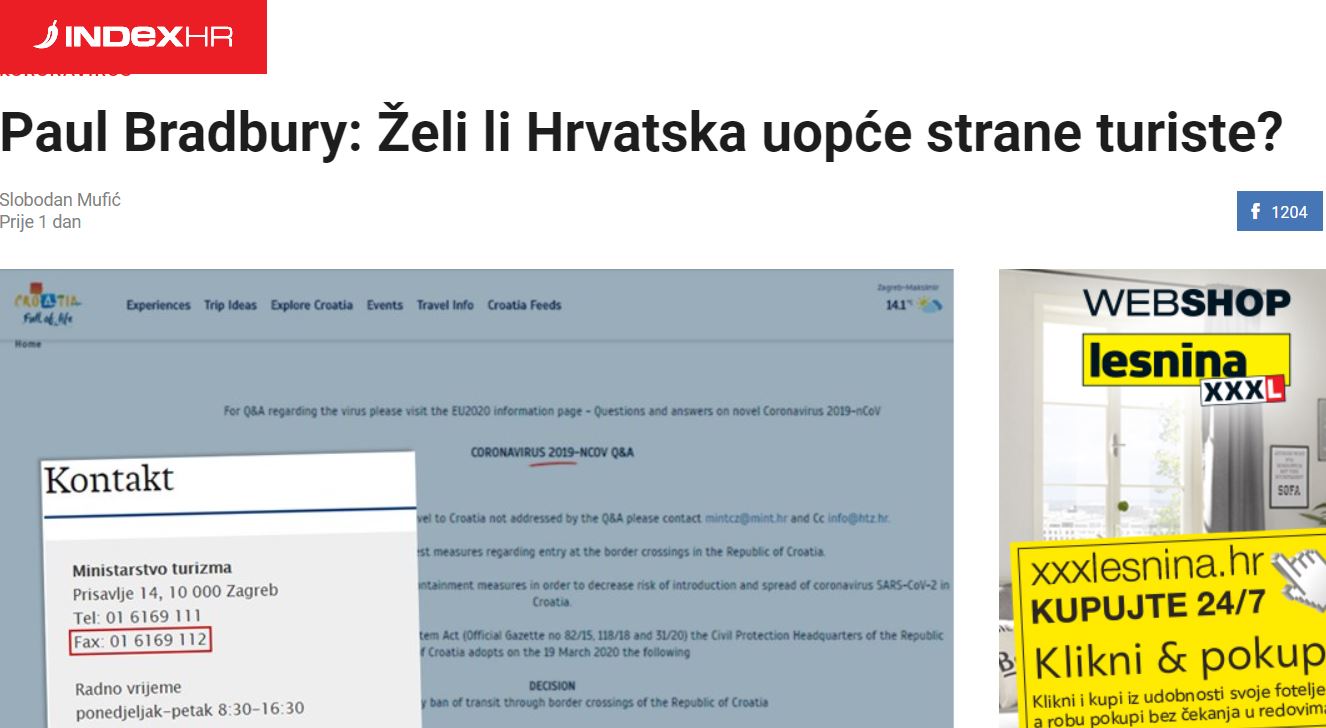
The biggest change has come at the Ministry of Tourism since Index published the article above late last week.
Within two hours, the Ministry home page went from being contactable by fax but not by email (the year is 2020 remember)...
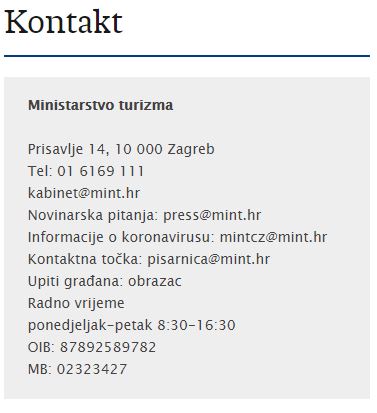
... to totally faxless AND with four useful email addresses.
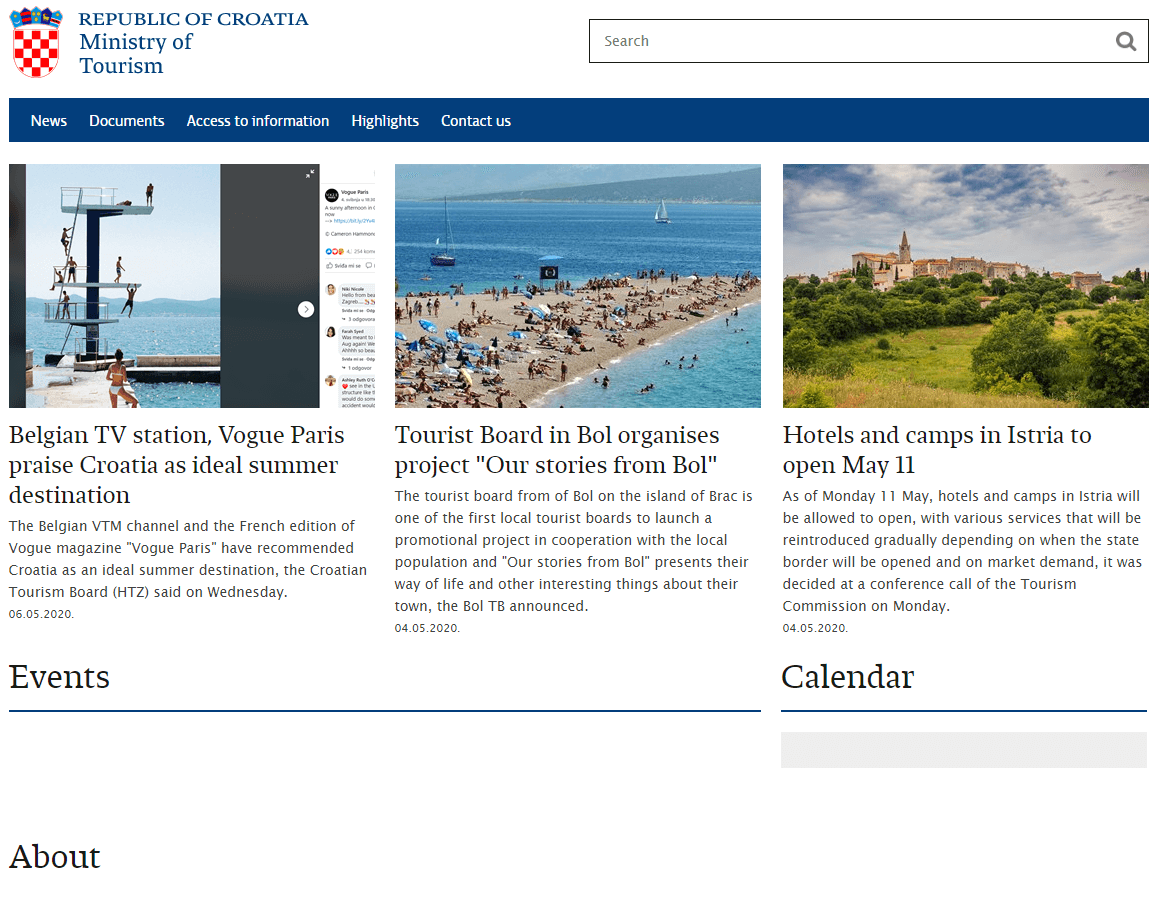
The ministry went much further. From an English-language page where coronavirus was actually not even happening...
...to a dedicated section on the latest information, as well as information on the minister's efforts to restart tourism.
And then yesterday, the first new article in English on the official Koronavirus website. This website has been an amazing resource in Croatian for citizens to get the latest information. I was impressed that the government produced an English version. It is updated daily with the latest numbers and charts, but little else. This latest article has very useful information and links to the latest pages regarding other countries as well.
So there we see the power of a leading Croatian portal to effect positive change in one article - Thank you, Index.
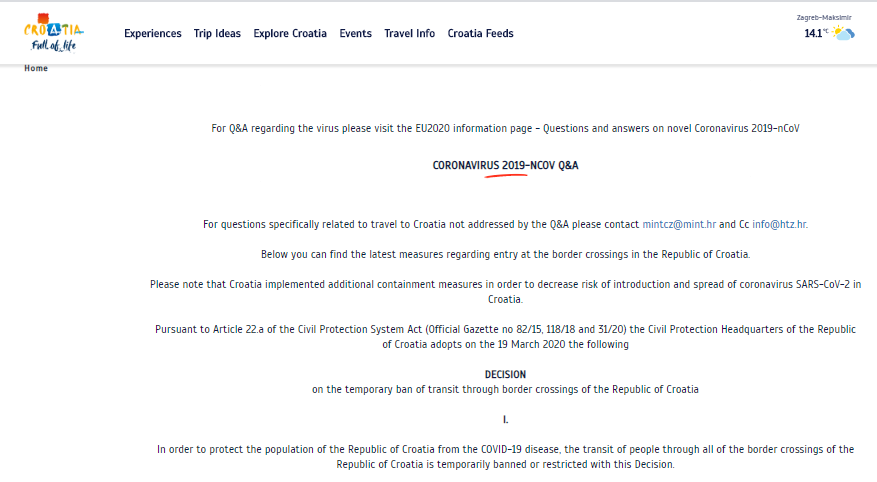
The Croatian National Tourist Board also got proactive after the Index article, turning its bizarre corona Q&A page from a copy past of the Official Gazette decision above...
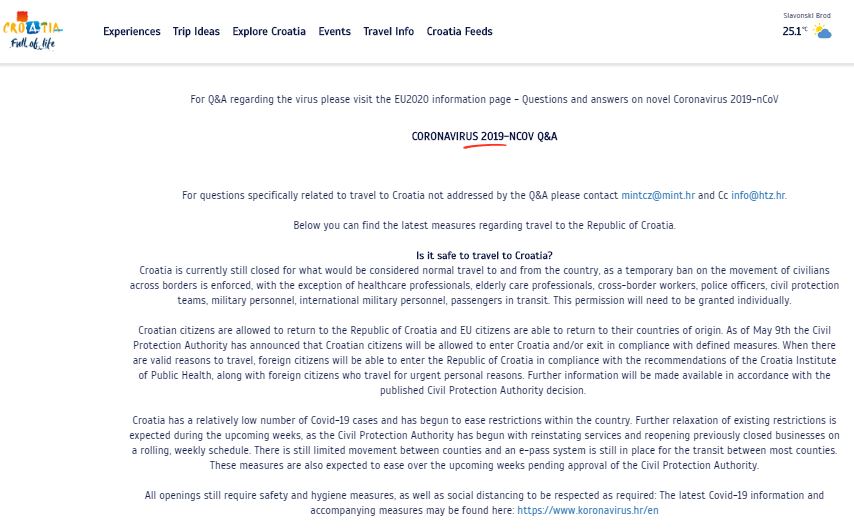
... into something vaguely useful here.
My hope was that the lights might be on in the Kingdom of Accidental Tourism, and that someone might take the initiative and review the rest of the travel advice.
But alas. It wouldn't be accidental tourism if we actually helped the tourists find their way here, would it?
The Kings of Accidental Tourism have what looks like an enticing section called Travel Info - How to Arrive.
As with many things in The Beautiful Croatia, looks are usually deceptive.
Here is the entire advice on how to fly to Croatia - it has been the same advice for years.
A useful link to the Civil Aviation Authority where you can check if the list of airports in Article 74 Paragraph 1 of the Air Transport Act, Official Gazette of the RC No. 69/09; 84/11; 54/13 and 127/13 is correct.
And if you are not booking with Croatia Airlines, are there even flights to the Kingdom of Accidental Tourism?
Some useful links to some of Croatia's airports give more contact details where you can find out presumably about Croatia Airlines flights.
Not even a chance to email anyone, or a website to visit if you are travelling by bus, athough there are helpful links to 8 bus stations who you can contact. Make sure you are not planning a trip to somewhere like Makarska or Varazdin, which are not covered.
And my favourite - arriving by sea, which on the surface looks very useful. And it is to a point. As long as, just like Croatia Airlines, you are travelling on the state ferry, Jadrolinija.
Unlike Croatia Airlines which seeingly has the flight monopoly on flights to the kingdom, Jadrolinija has to share with SNAV, but no mention of the companies connecting the kingdom to Trieste and Venice. And spare a thought for poor Krilo, whose fabulous catamarans have connected routes the kingdom didn't. No mention for them.
You see, in Uhljebistan, we can only promote our own services. Does it matter that easyJet, for example, brings 600,000 passengers a year? Why would you mention that?
Coming by train - here is all you need to know.
With a bigger selection of train stations than bus stations, and with a Google Map that doesn't load correctly.
If I was the chap running Varazdin Bus Station, I might be quite upset.
For the latest from the Mighty State of Uhljebistan, follow the dedicated TCN section.
Croatian Nautical Tourism Sector Calls for Further Definition of Protocols
The anti-epidemic measures might be slowly being released, but the Croatian nautical tourism sector is seeking not only further relaxations, but clearer definitions of certain rules and protocols.
As Novac writes on the 8th of May, 2020, the Association of Marinas of the Croatian Chamber of Commerce (HGK) welcomed the amendment to the Decision banning entry into seaports and inland ports in the Republic of Croatia, which, among other things, will sllow for the entry of yachts with a hull length of more than 24 metres into Croatian nautical ports or ports open to public traffic, as well as all vessels sailing under the Croatian flag.
Considering the fact that a significant part of Croatian nautical tourism consists of boats and yachts which are less than 24 metres, especially those that are not exclusively Croatian-owned, the Association of Marinas of HGK appeals for their inclusion in the amendment and calls for the further definition of a clear protocol for accepting vessels in Croatia's ports.
"Without clear measures for accepting ships, it will be almost impossible for Croatian marinas to receive guests and provide services. That's why we've drafted a protocol and sent it to the Croatian Institute of Public Health and the competent Ministries of Maritime Affairs and Tourism, and we're waiting for the latest instructions so that we can start providing reception services for guests in marinas. Given the potential of the nautical sector, we believe that the final proposal should be determined as soon as possible,'' said the president of the Association of Marinas of HGK, Sean Lisjak, adding that some of Croatian nautical tourism's competing destinations, such as Montenegro, have already made progress in this regard.
The competent ministry has recognised Croatian nautical tourism as the first activity that could restart in regard to the country's tourism-related activities. Therefore, we hope that Croatian nautical tourism will finally and officially be classified in the tourism segment and that the Croatian Government will respect our set of measures to help the sector out, which was something that was proposed back at the end of March,'' said Lisjak.
Once again, the aforementioned association discussed the expectation of exemption of marinas from the payment of both the fixed and the variable part(s) of the concession fee for the use of maritime property/domain, which was the topic of the last meeting with the state secretaries of the Ministry of Maritime Affairs and the Ministry of Tourism.
It was also concluded that in this crisis that it was evident that the long-standing appeal for the inclusion of marinas in the Croatian tourism sector must continue to be emphasised, as they were not accepted for tourism support, unlike other activities in the sector under these difficult, coronavirus-induced circumstances.
A special topic was the relationship with charters and other tenants. The HGK's charter association also supports the marinas' request for the exemption of the payment of concession fees.
"The water is starting to come up around our necks, the payment deadlines are piling up, the charterers can't pay them, and the marinas are waiting for measures [to address this issue] from the state. We're all on hold,'' stated Pasko Klisovic.
Charter companies have also sent a proposal for epidemiological measures to the CNIPH through the Croatian Chamber of Commerce, and some will start working with domestic guests as soon as passes (propusnice) are no longer needed.
"We hope they'll accept our proposals and publish the recommendations for this as soon as possible," added Klisovic.
"We asked through the Croatian Chamber of Commerce for inclusion in the CRO card scheme even before the coronavirus epidemic, and recently we talked to the Ministry of Tourism again about this topic and we were met with a great level of understanding," noted Klisovic.
The aforementioned association says that some guests may replace their vacation in an apartment this year with a vacation on a boat that provides them with social distance and all the conditions that epidemiologists recommend. Therefore, they urge that their proposals be urgently accepted and that the start-up of marinas and charter companies be given the green light as soon as possible, especially since the fixed operating costs are extremely high and they cannot afford to miss out on business opportunities.
They conclude that positive information about the opening of Croatia's borders and the Croatian nautical tourism as a safe destination and safe way of holidaying would be the best promotion and invitation to guests.
Make sure to follow our lifestyle and travel pages for more on Croatian nautical tourism.
Croatia COVID-19 Travel, Tourism, Flights & Borders Update May 10, 2020
UPDATE - THINGS ARE CHANGING FAST - HERE IS THE CURRENT OVERVIEW FROM MAY 19, 2020
May 10, 2020 - So what is the latest Croatia corona travel advice? When will borders open, flights take off, and tourism finally begin? An overview of what we know at the moment.
Can you travel to Croatia? Around Croatia? Is Croatia safer than other destinations? When will tourism start? Who can cross the border?
With so many questions, so much uncertainty, and SO many people wanting to go on holiday and get tourism started, here is what we know today. One thing is certain - things will be very different from tomorrow, May 11, 2020, with the third level of easing of measures, including on travel. Full details below.
The Croatian National Tourist Board and Ministry of Tourism official travel advice pages
The national tourist board has a page called Coronavirus 2019 nCoV Q&A.
Ministry of Tourism COVID-19 travel page.
Croatia corona travel - how safe is Croatia and how well has it handled the corona crisis?
Croatia has handled the health threat from coronavirus extremely well, both in terms of measures taken and communication. The authorities reacted quicker than most as they watched the horror unfold across the Adriatic in Italy, and an extremely effective National Civil Protection Headquarters has kept infections and deaths well below the European average. And this despite the additional challenges brought on by the Zagreb earthquakes.
(Source - Koronavirus.hr)
Croatia currently has 2,176 cases of infection, which has resulted in 87 deaths. The majority of cases - 1,726 - have recovered.
The authorities also moved quickly not only to close borders, but also to localise infection by severely restricting all unnecessary travel between municipalities. Its famous tourist islands have remained almost totally corona-free. Only those with an island ID were permitted to use the ferries, and only then with a special purpose.
(Source Velebit.ai)
So in terms of its approach to the virus, and the results, there is perhaps nowhere better than Croatia.
And then question on everyone's lips is - when can we travel to Croatia, and is Croatia corona travel safe?
Nothing is totally safe in these very uncertain times, but I would say that COMPARITAVELY speaking, Croatia is as safe as anywhere in Europe to come for a holiday IF conditions allow. More on that below.
What is the current situation with Croatia's borders? Who can enter the country?
- at Bregana and Macelj (with Slovenia);
- at Goričan and Duboševica (with Hungary);
- at Nova Sela, Stara Gradiška and Slavonski Šamac (with Bosnia and Herzegovina);
- at Bajakovo (with Serbia).
- use motorways only;
- use the following rest areas only: Novska jug, Novska sjever, Kozjak jug, Prokljan sjever, Draganić sjever, Draganić jug, Bačva, Ravna Gora, Lužani in direction Lipovac and Staro Petrovo Selo in direction Bregana;
- during breaks keep distance between You and other people;
- obey the rules of Civil protection or police officers.
- at Goričan border crossing, detour: Goričan junction-ŽC2026-DC3;
- at Dvor and Vitaljina border crossings - open only to passenger traffic;
- at Gunja border crossing - there is a traffic ban on freight vehicles and buses.
Due to traffic bans on freight vehicles in Slovenia long delays should be expected in freight traffic at Bregana/Obrežje and Macelj/Gruškovje border crossings starting 1 June.
Additionally, the Saturday press conference detailed some changes in specific cases for border crossing. More in this TCN article - Where Can We Go Outside Croatia, and Who Can Enter? Bozinovic Explains New Border Rules.
What is the latest news about the borders opening for tourism?
Everyone WANTS tourism to begin, but just how safe is it, when might it happen, and will it be for everyone?
From the Ministry of Tourism website:
Big interest in opening borders, says tourism minister
Croatian, Italian tourism ministers discuss plans for tourism
Hotels and camps in Istria to open May 11
Minister says talks on cross-border travel underway (May 4)
Some clues from some recent TCN articles:
Trip Report of Belgian National to Hvar by Car on May 7-8, 2020 (May 9)
Source Claims Croatia Could Reopen Borders Incrementally in June (May 8)
Croatian Tourism: Dubrovnik Seeks Special Flight Arrangements (May 5)
Any Hope for Croatian Tourist Season? We're Neighbours' First Choice (May 4)
Gari Cappelli and Slovenia Optimistic about Opening Borders between Two Countries (April 30)
EU Ministers Meet: COVID-19 Passport, Cro Card and More (April 28)
Istria County Tourism Committee Hosts First Session about Opening Borders (April 28)
COVID-19 in Croatia: Gari Cappelli Discusses Summer Travel with EU Tourism Ministers (April 28)
Austrian Media: Croatia is Our Best Chance for Summer Holiday (April 27)
German Bild on Croatia: Corona-Free Destination for Summer Travel (April 25)
What about flights to Croatia? An overview of all the major airlines to Croatia and their current positions
If there is one tiny cloud with silver lining for Croatian tourism, it is that the vast majority of its visitors arrive by car. The proximity of countries such as Slovenia, Austria, Germany, Poland, Czechia, Slovakia, Hungary and Serbia mean that the season will not be a total disaster if it is allowed to start. Holiday options for these countries will be more limited due to the drastic reduction in flights which will be a post-corona reality. So destinations such as Greece, Turkey and Egypt will be much harder to reach than hopping in a car from Central or Eastern Europe.
You can read some detailed analysis of the Croatian aviation market in the future from Max Oldorf, COO of ch-aviation in this TCN interview this week:
Flights to Croatia Post-Corona: Overview with Max Oldorf, COO of ch-aviation
The big intercontinental carriers have mostly writtten off 2020 totally, with Qatar Airways and American Airlines, delaying Dubrovnik until 2021. And with the CEO of easyJet saying the airline will feel like a new startup post-corona, Ryanair's homepage focusing on September breaks since March, and Norwegian Air on the brink, the reality is that flights to Croatia will be much reduced. The official Koronavirus website has produced this very helpful overview of where individual airlines are with their plans. You can follow the updated page here.
CROATIA
From May 4, 2020, it is mandatory to use face masks / headgear on all Croatia Airlines flights. Passengers on all Croatia Airlines flights are required to bring and wear face masks or covers. Masks must be worn throughout the stay in the cabin of the aircraft.
Acceptable face covers:
two-layer cotton face masks
medical (surgical) face masks
filter half masks with and without valve (FFP2 / N95)
From May 11, Croatia Airlines will operate flights on the following routes within Croatia:
Zagreb - Split
OU652 (08:00 - 09:00)
OU656 (20:20 - 21:10)
Split - Zagreb
OU653 (09:45 - 10:35)
OU657 (21:50 - 22:40)
Zagreb - Dubrovnik
OU662 (08:00 - 09:05)
OU664 (20:20 - 21:25)
Dubrovnik - Zagreb
OU663 (09:50 - 10:55)
OU665 (22:10 - 23:15)
Information on other domestic flights will be published later.
Dubrovnik Airport is closed to civilian traffic until 02/05/2020. due to preventive measures to prevent the spread of coronaviruses. More details.
Osijek Airport - from 27.4. the Pothodnik branch reopens. While prevention measures are in place, the opening hours will be 9 am-5pm on weekdays (Monday through Friday). More information can be obtained by e-mail This email address is being protected from spambots. You need JavaScript enabled to view it. and phone +38531284611. It is recommended that all inquiries be sent in writing to the specified e-mail. More information.
Rijeka Airport - latest info here.
Zagreb Airport - latest info here.
The Croatia Airlines contact center is available on the following numbers: 0800 77 77 (toll free calls from Croatia), 072 500 505 or +385 1 66 76 555. More info.
AirBaltic - All AirBaltic connections are suspended from March 17 to May 12, 2020, including airBaltic operations from Estonia and Lithuania. Click for the latest info.
Air France - Due to coronavirus, they have reduced 90% of flight capacity and this supply reduction is in effect until the end of May. Due to the closure of Paris-Orly Airport, all flights from and to Paris go via Paris-Charles de Gaulle Airport. Latest info.
Air Canada has suspended all flights between Toronto and Zagreb for the summer of 2020.
Austrian Airlines, a branch of Lufthansa, has decided to suspend all its scheduled flights until the end of May 2020. More details.
British Airways - the latest updates.
Brussels Airlines has decided to suspend flights until May 15, 2020. More details.
Czech Airlines has suspended flights to / from Prague from 16 March, as a result of the Czech government's declaration of a state of emergency and a related ban on foreigners entering the Czech Republic. More details.
easyJet - They made the decision to ground the aircraft until further notice. More details.
Emirates - Emirates has established limited passenger flights to transport passengers departing from the UAE. More details.
Germanwings - Germanwings flights no longer exist.
KLM - Latest info.
Lufthansa - More details.
Ryanair - As most EU countries have imposed flight bans or other restrictions, more than 90% of Ryanair's aircraft are grounded, and the limited flight schedule has been extended until 28 May. More details.
Turkish Airlines - All international flights are canceled until May 28, 2020. More details.
Qatar Airways - all direct flights between Zagreb and Doha are suspended until May 31, 2020. Flexible when changing travel plans until September 30, 2020. For more information, contact the Qatar Airways office in Zagreb at +385 (0) 1 4961110 / 111, email: This email address is being protected from spambots. You need JavaScript enabled to view it. or check the details here.
Wizz Air - In early May, it will fly from Budapest to Athens, Barcelona, Berlin, Birmingham, Basel, Dortmund, Eindhoven, Gothenburg, London, Liverpool, Madrid, Podgorica, Sarajevo, Stockholm and Targa Mures. See more here.
What about freedom of movement within Croatia at the moment?
After weeks of being confined to the individual municipality, restrictions were recently lifted on travel within Croatia's 20 regions (but not in all cases). It is expected that this will be loosened further if the current situation remains stable - from May 11. Please note that countywide travel is not the case everywhere - for the latest, check the official government Koronavirus website. An exception to this is the island of Brac, which has reimposed measures after the recent outbreak.
The authorities announced last week that those with real estate elsewhere in Croatia can now get a permit to visit it - good news for the many people with holiday homes on the coast.
Expect a major increase in traffic on the roads and ferries on May 11.
Relaxing measures: what is possible now, and how will travel change on May 11?
On April 23, 2020, Prime Minister Plenkovic announced his 3-phase plan to loosen restrictions.
Part one has already come into force:
PHASE 1 - April 27, 2020
- Ability to work for all business entities engaged in trade, except those operating within shopping centers
- Continuation of work to all business entities engaged in service activities, except those in which close contact with customers is observed, respecting physical distance measures (for example, carpenter, tailor, locksmith, travel agencies, photo studio)
- Introduction of public city and suburban transport lines and express lines for islands not connected by ferry
- Libraries, museums, galleries, antiques and bookstores to open
- Facilitating training of athletes I and II. categories in individual sports and senior sports teams competing in the highest level of competition
- Facilitating the state professional exam for priority groups of students
And the second phase is due to come into effect on Monday:
PHASE 2 - May 4, 2020
- Enabling the full operation of the public health system, with the exception of exceptions in line with the Ministry of Health measures
- Enabling the full operation of the private health system, with due regard for specific epidemiological measures
- Ability to work for all business entities engaged in service activities in which close contact with clients is observed, with respect to specific epidemiological measures (for example, hairdressers, beauticians, barbers, pedicurists)
PHASE 3 - May 11, 2020
- Gatherings of up to 10 people in one place allowed, while respecting physical distance measures
- Facilitating the operation of shopping malls while respecting specific epidemiological measures
- Facilitating the work of preschools and elementary classes from grades 1-4 and special classes and working with children with disabilities who have a teaching assistant
- Laboratory, artistic and clinical exercises and practical work allowed in small groups in higher education
- Introduction of inter-county and domestic air services
- Allowing catering facilities to work exclusively in outdoor areas and terraces
- Allowing catering facilities to work in accommodation facilities only for users of accommodation services
- Operation of national and nature parks allowed
- Expanding opportunities for issuing e-passes
What is the situation with ferries in Croatia?
Zadar-Ancona international ferry operates for freight vehicles only.
A reduced service is running - here is the timetable in full in English.
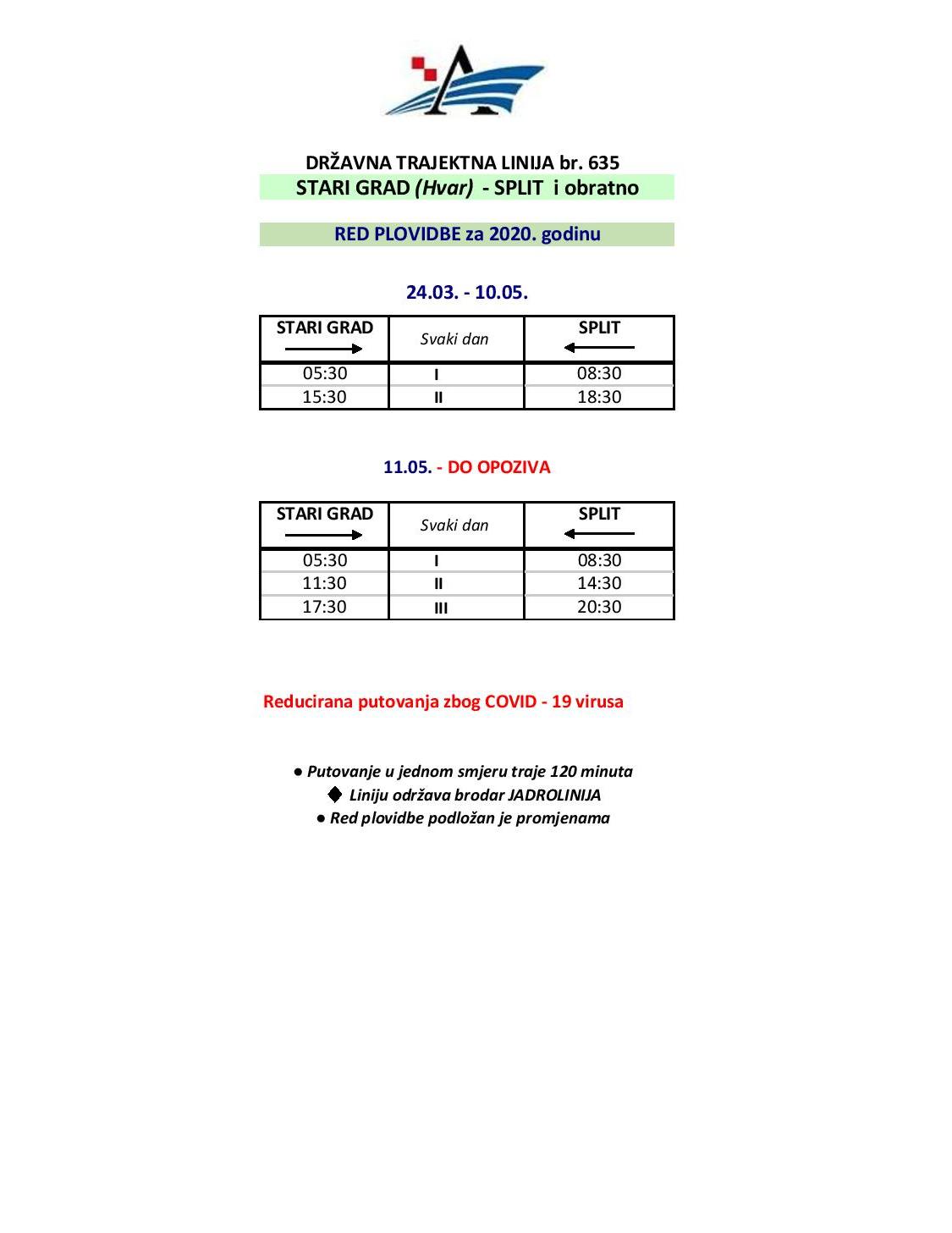
Tomorrow will see an extra ferry from Split to Stari Grad on Hvar, for example.
TCN reports from the ferry terminal in Stari Grad on Hvar to give an indication of what current ferry traffic is like.
You can check the latest news in English on the Jadrolinija website.
The latest HAK ferry information in English is here.
Are buses running between cities in Croatia?
Currently no, but they will start from tomorrow, May 11.
A really good resource from GetByBus gives you all the latest.
Also worth a read on the new realities on buses:
FlixBus Returning to Croatian Roads, Passenger Instructions Published
What about local transport?
Some local transport has now restarted. I don't have more information currently than what is in the links below, but happy to add if anyone wants to send updates to This email address is being protected from spambots. You need JavaScript enabled to view it. Subject Travel Update
New changes to the ZET tram timetable in Zagreb (May 4)
An overview of the situation in Zagreb. (April 26)
Promet Split Back in Action Monday: Bus Timetables, Tickets, and Rules (April 26)
Are there any trains currently running in Croatia?
Currently no, but that will change tomorrow, May 11. From the HAK website:
What is the situation on Croatia's roads and motorways?
There is obviously a lot less traffic on the roads currently. For the latest information on roadworks and other problems, check this HAK page (in English)
Are taxis and private transfers available in Croatia?
Yes. I checked with one of the most reliable providers, Octopus Transfers, and they are able to cover transfers all over the country.
What are the self-isolation rules for people entering Croatia currently?
People entering Croatia have been required to self-isolate for 14 days.
However, in the National Civil Protection Headquarter's press conference on Saturday, May 9, Interior Minister Davor Bozinovic said that everyone coming into Croatia would be given clear instructions by the Croatian Institute of Public Health.
This would not mean mandatory self-isolation, as it is unrealistic to let someone come for economic reasons or other business meetings and prevent them from leaving their place or hotel or any other accommodation, the Minister said.
The situation is constantly evolving, and for the latest on travel updates and all other coronavirus developments, we recommend you follow the dedicated TCN COVID-19 section.
If there are errors or omissions in the above, please contact me at This email address is being protected from spambots. You need JavaScript enabled to view it. Subject Travel Update, so that I can get this resource updated. Thanks in advance and stay safe.
South Korean SRT Tourist Magazine Places Croatia, Rab in Top 8 Destinations
The coronavirus pandemic has been causing a plethora of issues for countries which primarily rely on tourism for their economies, and Croatia, in which tourism accounts for about 20 percent of GDP, is no exception. The South Korean SRT tourist magazine, however, isn't letting the pandemic get in the way of them praising the country.
As SEEbiz writes on the 9th of May, 2020, the South Korean SRT tourist magazine, published by the railway company of the same name, Super Rapid Train, has included Croatia and the island of Rab among the TOP 8 destinations in the world in its May publication.
The article about the island of Rab points out that in a survey conducted by SRT magazine, many readers chose Croatia as their number one destination. It is also stated that Croatia is a country with more than a thousand islands, including the island of Rab with its exceptional cultural heritage, which is often called the "emerald island" due to its unique blue-green colour. According to the Soyth Korean SRT tourist magazine, the best time for South Korean tourists and readers to visit Rab is the period from June to September.
"After a great report on Croatia in the March issue of SRT, this time the island of Rab has found itself in the company of seven world destinations along with Ica and Paracas in Paraguay, Wellington in New Zealand, Macao, Bettmeralp in Switzerland, Camino de Santiago in Spain, Hawaii and Taiwan,'' said the director of the Croatian National Tourist Board Kristjan Stanicic, adding that at the moment every positive announcement in foreign media contributes to maintaining the image of the Republic of Croatia as a desirable and safe tourist destination worth visiting.
It's also worth mentioning that SRT, as the operator of the super-fast train on the Seoul route, which has a massive ten million inhabitants, and Busan, which has five million inhabitants, transports around 2.5 million passengers a month.
Make sure to follow our dedicated travel page for much more on Croatian destinations.
Coronavirus: Dalmatia Wants to Relax Measures for Hospitality Industry
As Novac/Jozo Vrdoljak writes on the 7th of May, 2020, the third phase of easing the anti-coronavirus measures, which begins on May the 11th, will enable the operation of catering and hospitality facilities and only in outdoor areas and on terraces, while respecting the special epidemiological measures which continue to be firmly in place.
This is one of the reasons why the representatives of the catering and hospitality industry in the Professional Group of the Croatian Chamber of Commerce (HGK), more precisely the Split County Chamber, decided to hold an online session. The session discussed tax burdens and levies, the lease of public areas and business premises owned by the state and by local self-government units, unfair competition, a moratorium on credit indebtedness and other issues of importance for the functioning of this type of business in the coronavirus era.
For each of the aforementioned topics, concrete proposals and ways of dealing with things were provided at the session, and it was agreed that, depending on the issue, the group would send letters with their proposals to various institutions. These included the City of Split, the Croatian Employment Service (CES), the State Inspectorate, and via the national association to the Croatian Chamber of Commerce itself, and then even further - to the appropriate ministries and to the Croatian Government.
"Until the current requirements for the operation of catering facilities are relaxed, I'm of the opinion that the vast majority of those working in this sector will have neither the conditions nor the motives to start working again," said Ivan Malada.
Stipe Jelicic, Vice President of the Association of Catering/Hospitality Activities of the Croatian Chamber of Commerce, informed his colleagues about the proposal for the measures for the catering and hospitality industry from the aforementioned national association and the course of the negotiations with the National Civil Protection Headquarters regarding those same proposals in the hope of reaching a fair and favourable solution that suits everyone.
The group pointed out the various issues and problems created by the situation with the coronavirus pandemic in the catering and hospitality industry and proposed some solutions to those issues. At the very beginning of the crisis, the group sent their proposals for what the measures should look like to the City of Split and to Split-Dalmatia County.
"Regarding the beginning of operations for those in the catering and hospitality industry under these specific conditions, we've suggested to the State Inspectorate that their actions be primarily educational and preventive, with the aim of pointing out omissions, and if there are minor mistakes, the allowance for them to be corrected. That's why I'd like to invite those in this field to contact HGK ŽK Split directly if they have difficulties in organising their work in accordance with the decisions and instructions, in order to cooperate with the competent institutions in a constructive way to resolve misunderstandings and find solutions,'' stated Joze Tomaš, president of the Croatian Chamber of Commerce - Split County Chamber.
Make sure to follow our dedicated section for all you need to know about coronavirus in relation to Croatia.
Mediatoolkit Analysis: Can the Media Save the Croatian Tourist Season?
May 7, 2020 - Croatian media monitoring and analytics service Mediatoolkit with some very interesting research on interest in Croatia as a tourist destination this summer.
Recently, the BBC published an article about Greece and Croatia being two European countries that reacted swiftly and effectively to stop Coronavirus from spreading, which might lead to a successful tourist season as a reward.
These types of articles that present Croatia as a “Corona free” country that has the situation under control can be of great help in attracting tourists. Especially when published by prominent news outlets such as BBC.
According to Mediatoolkit, over a million people read the BBC article in one day, and almost two thousand interacted with it, whether through likes, comments, or shares.
The mention analysis of Croatia in the context of tourism and Coronavirus was made using the media monitoring tool Mediatoolkit. This type of analysis is possible in all languages, but for this purpose, we focused only on English, Italian, and German.
Query setup
Croatia - an example of good practice
The BBC wasn’t the only news outlet that mentioned Croatia.
Lately, foreign media has started describing Croatia as a country that had set a good example for handling the Coronavirus crisis and also having a chance to save its tourist season. In the graph below you can see the growth of online mentions of Croatia in the context of Coronavirus and tourism in English. To be precise, the number of online mentions in the analyzed period was 175,57% higher than in the previous one. Also, in the graph, you can see a spike in mentions of Croatia after April 19, which may have a positive impact on tourism if that trend continues.
Mentions over time in English
When it comes to mentions of Croatia in the context of Coronavirus and tourism in German, we noticed a spike of mentions of 167,2%.
Mentions over time in German
Most mentions in German were published in Germany, followed by Austria and Switzerland. For years now, Germans are among Croatia’s most numerous guests over the summer, so it is no wonder that there’s huge interest from the German public about the situation in Croatia.
On the other hand, mentions in Italian are currently declining for 11,5% compared to the previous period. Such a result can be explained by the fact that Italy itself is an extremely tourist-oriented country. They’ll focus primarily on saving their season, which is projected to drop traffic by 60%.
One interesting piece of data came up in the analysis. Mentions of Croatia in English and German were predominantly negative (around 55,8%), while mentions in Italian were predominantly positive (73,6%). This could be due to the fact that the Italians write more about how to save the tourist season and also mention Croatia. German and English language-based media, on the other hand, are more concerned with the general situation around Coronavirus and tourism.
Positive-negative sentiment ratio
Successful tourist season?
From the very beginning of the Coronavirus epidemic in Croatia, one of the burning issues has been what will happen to the tourist season. At first, there was little room for optimism, but after two months of adhering to distancing measures, it seems that Croatian people potentially saved tourism from a complete disaster. We say potentially because we still have to take into account that the Coronavirus has not disappeared and that due to negligence, the situation can turn upside down again.
Istria, which was recently declared a “Corona free” zone, will slowly start opening their hotels and camps for tourists. This news was also conveyed by our multilingual portals, which are a strong support to tourism.
News about Istria being “corona free” for the last three days on the La Voce del popolo portal was seen by over 30 thousand people. Similarly, the news on Kroatien-Nachrichten about Istria opening hotels and camps for tourists was seen by over 9 thousand people in the first 8 hours.
What measures will be taken?
To prevent the recurrence of the black scenario, intensive efforts are currently underway to find solutions for the safe arrival and reception of tourists. While Czech travel agencies are proposing to set up "corridor coronas" so that Czech tourists can reach Croatia safely, Dubrovnik is considering organizing special flights from the EU and the UK. Dubrovnik is expecting to solve the situation by mid-July.
The director of the Tourist Board of the city of Split, Alijana Vukšić, announced in Slobodna Dalmacija, city’s new Together in Split campaign, through which they will try to attract tourists. The emphasis will be placed on tourism products that enable tourists to maintain the necessary distance, such as recreational, nautical, and health tourism.
Intensive talks are also being held with Slovenian neighbors, whom the Minister of Tourism Cappelli described as one of the most loyal and numerous guests. Both sides are interested in establishing cross-border tourist traffic between the two countries, which is expected to happen in late summer under special health care conditions.
At the moment, it is still uncertain whether prices will drop in the most popular Croatian tourist centers to further motivate tourists to come.
The importance of media image in the age of the Corona
Judging by the epidemiological data, Croatia, along with Greece, is in a much better position than other tourism competitors. If the favorable epidemiological situation continues, the tourist season may be somewhat successful after all. We can already see the trend of reporting on Croatia as a “Corona free” zone in the foreign media, which will be one of the most important factors in the decision-making process for tourists this year.
We should emphasize the importance of monitoring the Croatian media image in foreign media and creating campaigns similar to the one in Split. With these types of campaigns, we could present accessible and safe activities to potential tourists. Such a strategy also enables timely response and ensures visibility. However, this applies not only to tourist boards but also to travel agencies and restaurants so that they can better manage their promotional activities.
It is also recommended to monitor the media coverage of competitors such as Greece. By following the foreign media outlets that frequently post about Greece, opportunities can be found to promote our tourist offer as well. Considering that this tourist season might be the most competitive yet, it is extremely important to work on further increasing the number of mentions of Croatia abroad.
You can learn more about Mediatoolkit on the official website.
How are the official Croatian tourism bodies updating visitors regarding the latest travel situation? A comparison with Croatia's tourism competitors.
Still, if this growing popularity of Croatia as a tourist destination tells us anything, it is that we must keep the epidemiological situation under control and take personal responsibility for reducing the spread of the virus by maintaining hygiene and social distance. With enough discipline and clever promotion, this season can be far from over.
With Domestic Tourism Encouraged, Can Croatia Attract Foreign Tourists?
Croatia currently has a very favourable epidemiological picture. The battle with coronavirus has gone well here, and the numbers of both those infected and those who have unfortunately died remain very small indeed. Croatia was praised by Oxford University for its stringent anti-epidemic measures, and with other European countries like the United Kingdom and Italy suffering horrifically, Croatia deserves praise. With that being said, can Croatia attract foreign tourists at all this season?
More and more countries are leaning towards incentives to keep their nationals and residents within their country's borders and to take holidays and other leisure trips to different destinations at home, as opposed to travelling abroad. With these incentives on the rise, the question: Can Croatia attract foreign tourists to its shores to save at least part of 2020's season? is growing ever louder.
Croatia is also trying to encourage domestic tourism, but with pockets empty and the immediate economic situation looking rather bleak, one has to ask just how Croatian families will afford travel this year, especially when staying in the homes of friends and relatives, as well as summer homes along the coast is much more normal for Croatia's residents than booking stays in hotels is.
As Poslovni Dnevnik writes on the 7th of May, 2020, it wasn't only Croatia that came up with the idea of encouraging domestic tourists to stay within the country's borders in order to spend the money intended for trips that would otherwise be spent abroad here at home. Now we have a new problem with the attempt at rescuing this year's tourist season. In the countries from which most tourists come to Croatia, holidays at home are being actively encouraged.
Croatia is in a line with the likes of Greece, Spain, Italy, Turkey and more, entire lists of countries that primarily live from tourism revenue that will do their best to keep as many domestic tourists within their borders and thus help their own the economies are growing longer and longe, but not all governments have announced their plans yet, according to a report from Večernji list. Could Croatia therefore seek to attract foreign tourists after all?
In Germany, which puts tens of millions of tourists out ''into the world'' per year (about three million German citizens come to spend their holidays in Croatia), spending a holiday in one's own country has never been more topical.
Holidays within German borders are chosen by about 35 percent of Germans in pre-coronavirus times, and now, disciplined and aware as the Germans so famously are, they will not need to listen to too many explanations as why it's good to spend their euros at home as opposed to abroad in 2020.
If there is no continued escalation of the ongoing coronavirus pandemic, German tourist hosts even believe that some German destinations which aren't that used to massive volumes of traffic could face a real tourist invasion.
In neighbouring Slovenia, holidays at home, within the country's borders are also being more and more popularised. The Slovenian Government is also preparing tourist vouchers, much like Croatia's Cro card, to encourage domestic tourist traffic. Croatia's other neighbours, the Hungarians, also have similar plans in the works for their residents.
The possibility of vouchers being given to employees for the use of annual leave in the Czech Republic and not taxed has already been mentioned there. The value of that voucher would be around 400 euros. By the end of May, it will be known whether the hard-hit Italians will also receive financial support to spend their holidays in their country. Amounts of 300 to 500 euros for an arrangement with at least three nights in an Italian destination are now being discussed. Announcements about the introduction of vouchers for domestic tourism are also coming from Poland.
Can Croatia attract foreign tourists at all this year? Is it time for the country to finally stop resting on its laurels and be more proactive? As the coronavirus pandemic continues to unfold, and with the concern of a possible second wave brewing, it seems only time will tell.
Make sure to follow our travel page for much more.

